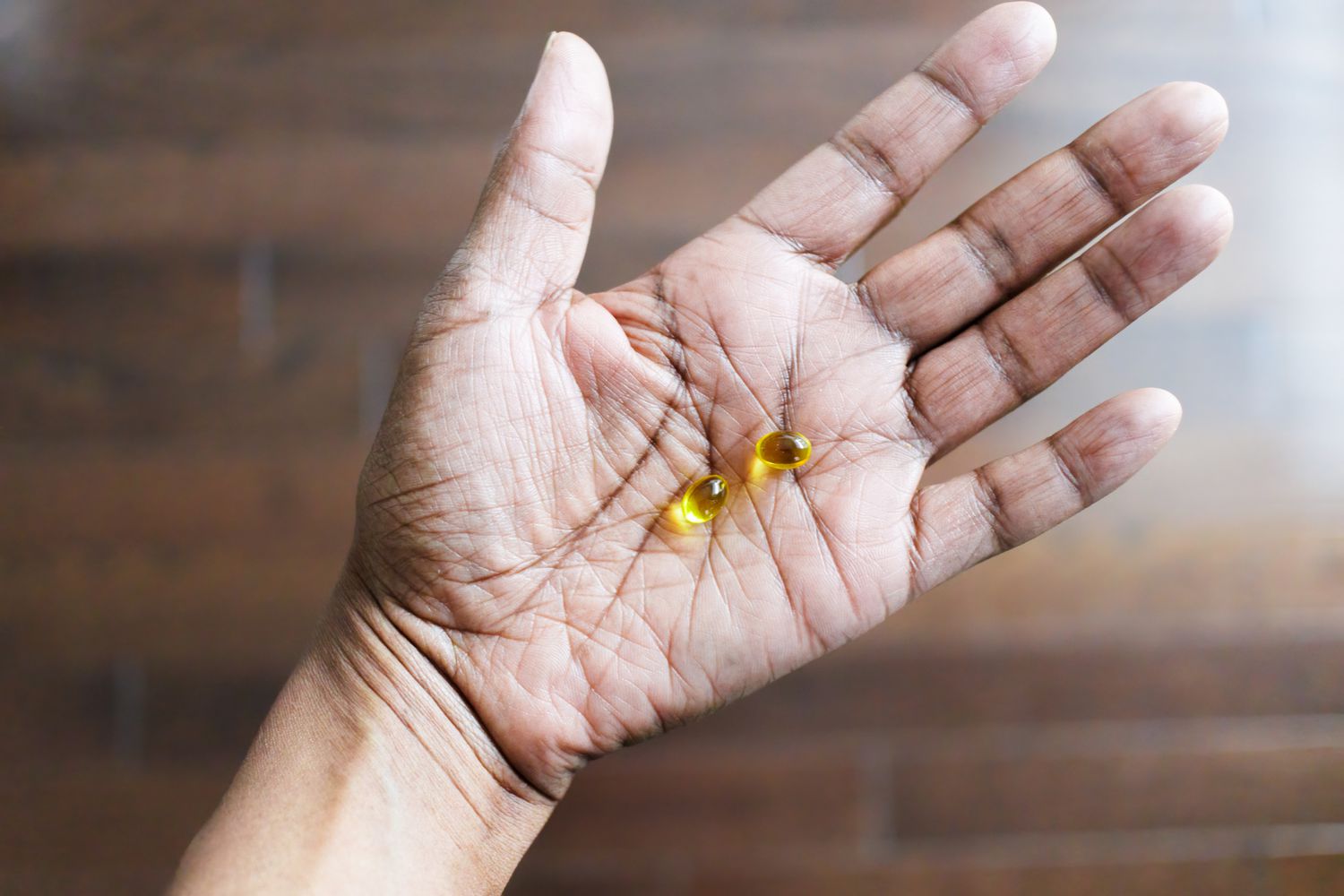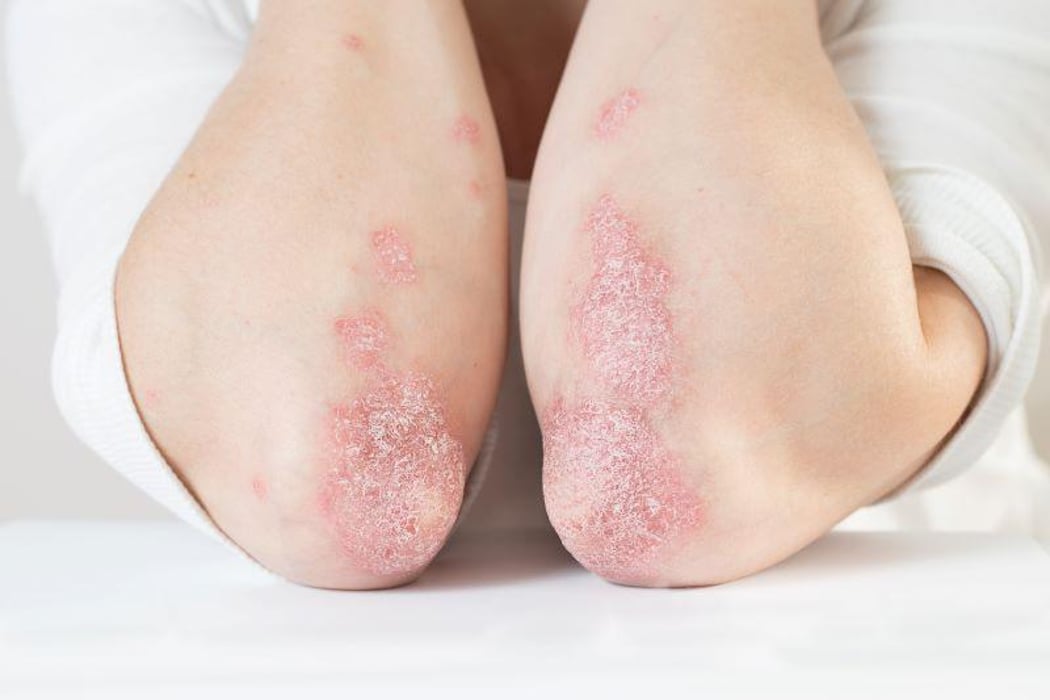Getting enough vitamin D through diet or supplements might help manage psoriasis, an autoimmune disease that causes itchy, scaly patches on the skin, researchers suggest.
This claim comes from a new study presented Tuesday at NUTRITION 2023, the annual meeting of the American Society for Nutrition.
Though the findings are preliminary and have yet to be published in a peer-reviewed journal, experts say increasing your intake of vitamin D could be a relatively low-risk way to reduce psoriasis severity.
“The role of oral vitamin D supplementation as a treatment option remains controversial,” said Rachel Lim, presenting study author and MD candidate at the Warren Alpert Medical School at Brown University.
“Our study suggests that following a vitamin D-rich diet or starting oral vitamin D supplementation may provide some benefit to psoriasis patients, but further research is certainly warranted.”
Psoriasis is a chronic disease affecting approximately 8 million people in the U.S. It causes the immune system to become overactive, leading to rapid skin cell multiplication.
This results in thick, scaly, and inflamed patches of skin, commonly found on the scalp, elbows, or knees due to increased friction in those areas.
The cause of psoriasis is still unclear, making this new research significant, as experts haven’t identified many modifiable risk factors for severe psoriasis, according to Dr. Saakshi Khattri, an associate professor of dermatology at the Icahn School of Medicine at Mount Sinai.
“If low vitamin D, once modified, improves [psoriasis], that would be helpful because we could use a modifiable approach,” she said. “I’m excited for the next step [in this research].”
Below, experts explain what the new study could mean for future psoriasis treatments, why it’s essential to get enough vitamin D, and how to incorporate more of it into your diet.
Previous research on the connection between vitamin D levels and psoriasis severity was limited.
“There is existing evidence for an association. However, most previous studies have been conducted outside of the U.S. and in small study populations,” Lim said. “We sought to investigate whether this relationship would be replicated in a large, nationally representative U.S. population.”
Lim’s team used data from the National Health and Nutrition Examination Study (NHANES), a program run by the Centers for Disease Control and Prevention (CDC) that has been collecting information since the 1960s.
They identified 491 NHANES participants who had psoriasis from 2003–2006 or from 2011–2014 and analyzed their vitamin D levels and how much of their body surface area was affected by psoriasis.
Taking factors such as age, body mass index, race, gender, and smoking status into account, Lim’s team found that lower vitamin D levels and vitamin D deficiencies were significantly associated with greater psoriasis severity.
They also noted that patients with the highest vitamin D levels had the lowest amounts of body surface area affected by psoriasis.
“We found that lower serum vitamin D levels were associated with more severe psoriasis, in a dose-dependent fashion,” Lim explained.
Although research on the connection between vitamin D and psoriasis is still in its early stages, Lim said experts have a theory as to why the two might be related: Vitamin D is already used as a treatment in some cases.
Vitamin D analogs—also known as synthetic vitamin D—are currently used to treat psoriasis.

These analogs, which differ from over-the-counter supplements, come in topical form and bind to vitamin D receptors on keratinocytes (skin cells) to prevent or slow their growth.
“Topical synthetic vitamin D creams are emerging as new therapies for psoriasis, but these usually require a doctor’s prescription,” Lim said in a news release.
“Our results suggest that a vitamin D-rich diet or oral vitamin D supplementation may also provide some benefit to psoriasis patients.”
Given the few modifiable risk factors for psoriasis, such as smoking, alcohol use, stress, and sun exposure, a low-risk lifestyle adjustment like increasing vitamin D intake might seem promising.
However, experts caution that this research is still too new to start supplementing with vitamin D on your own.
“This is speculative at this moment,” Khattri said, “but I think it’s worthwhile bringing it up to your dermatologist or primary care doctor.”
Working with a healthcare provider is typically advisable for vitamin D supplementation in general.
Although vitamin D toxicity is rare, it can occur. Excessive vitamin D can lead to hypercalcemia, a buildup of calcium in the blood, causing nausea, vomiting, weakness, and frequent urination.
If a doctor deems it necessary, they may order a blood test to check for vitamin D deficiency and help you create a plan to increase your intake.
Future studies are expected to further examine the role of vitamin D supplementation in psoriasis treatment.
“Further research, such as randomized trials, is warranted before any firm medical recommendations may be made,” Lim said.
Though the new research focuses on people with psoriasis, it’s important to note that many people don’t get enough vitamin D.
“Low vitamin D is a pretty ubiquitous problem in the population in general,” Khattri said. About 1 in 4 people in the U.S. have vitamin D levels that are too low or inadequate for bone and overall health.
While vitamin D supplements are available, most of your nutrients should come from your diet. Foods naturally rich in vitamin D include:
- Fatty fish (trout, salmon, tuna, mackerel)
- Eggs (yolk included)
- Beef liver
- Cheese
- Mushrooms
In the U.S., fortified foods also provide ample amounts of vitamin D. The American milk supply, for example, is voluntarily fortified with about 3 micrograms per cup of vitamin D. Other fortified foods include:
- Plant milk alternatives (soy, almond, or oat)
- Ready-to-eat breakfast cereals
- Orange juice
- Yogurt
- Margarine
While more research is needed before doctors can make definitive statements about the role of vitamin D in psoriasis treatment, it’s worth exploring if you’re having trouble managing your symptoms.
“If this truly pans out, this could be helpful in lessening the severity of psoriasis,” Khattri said, “but we need further studies.”
